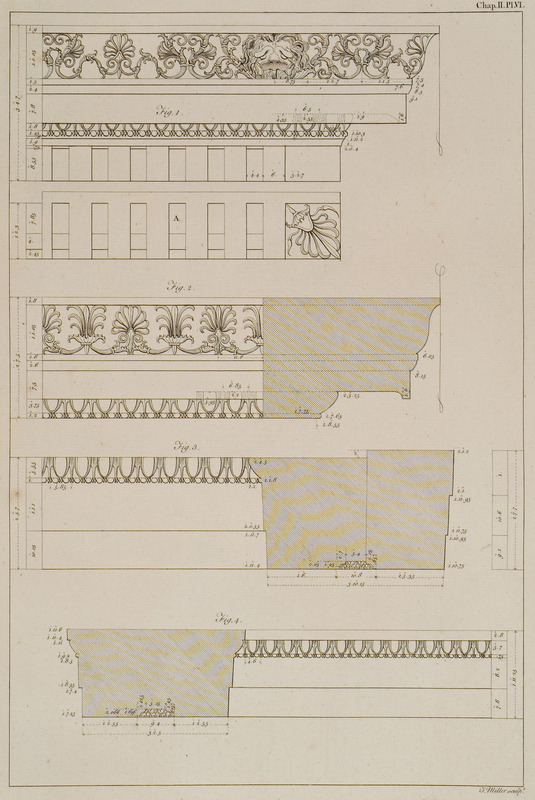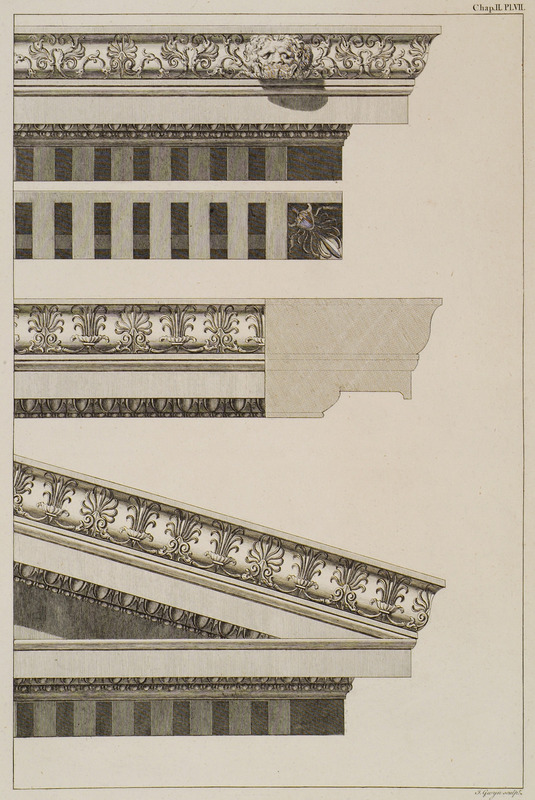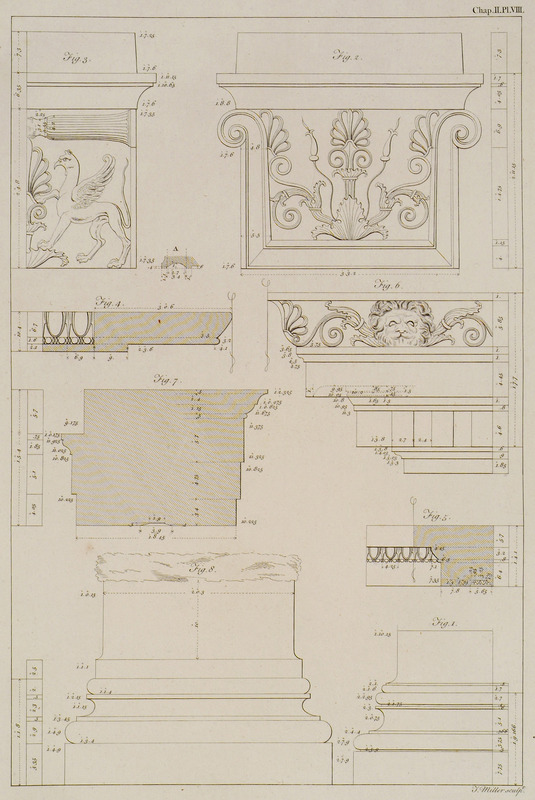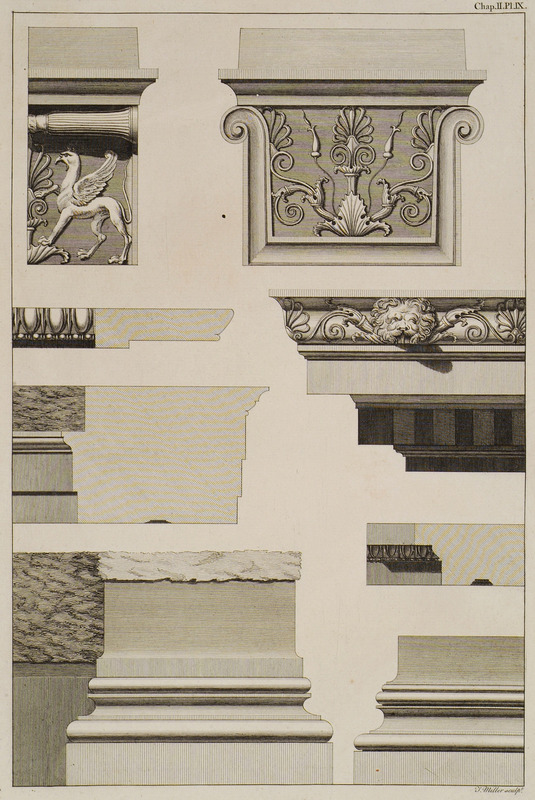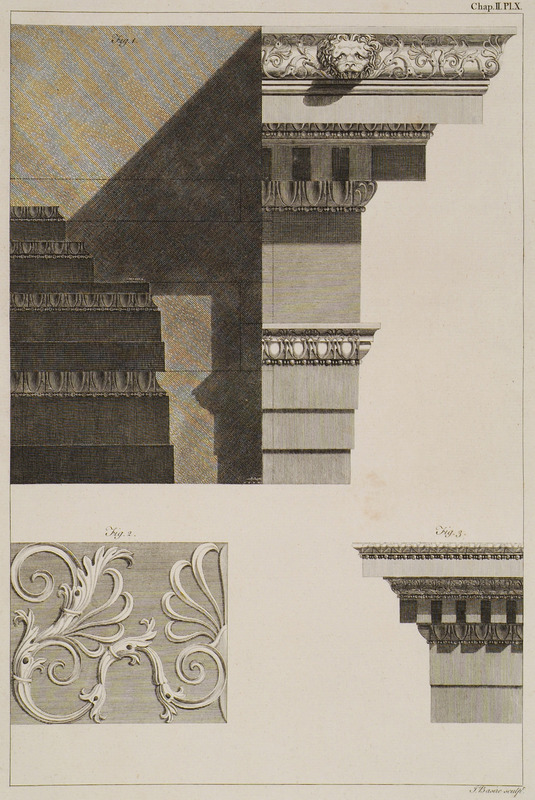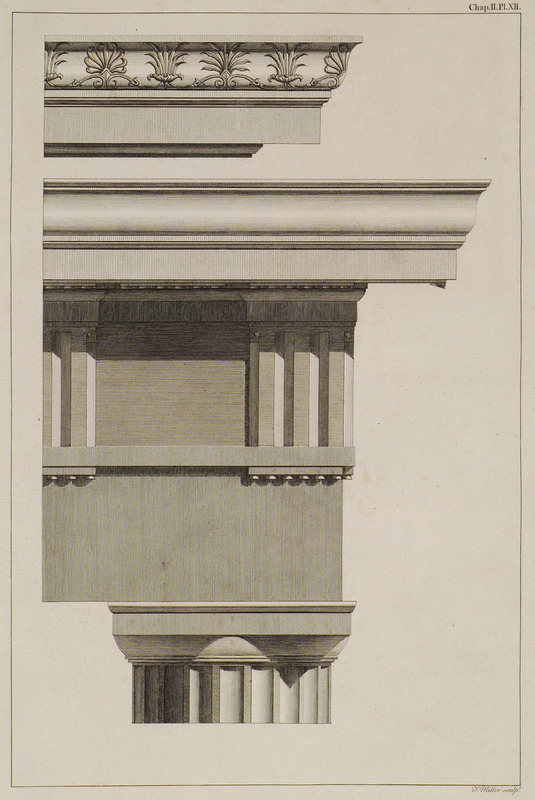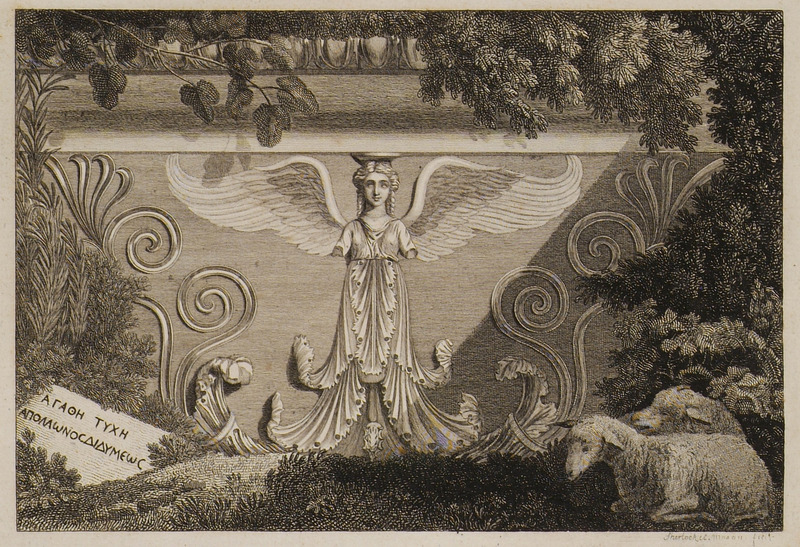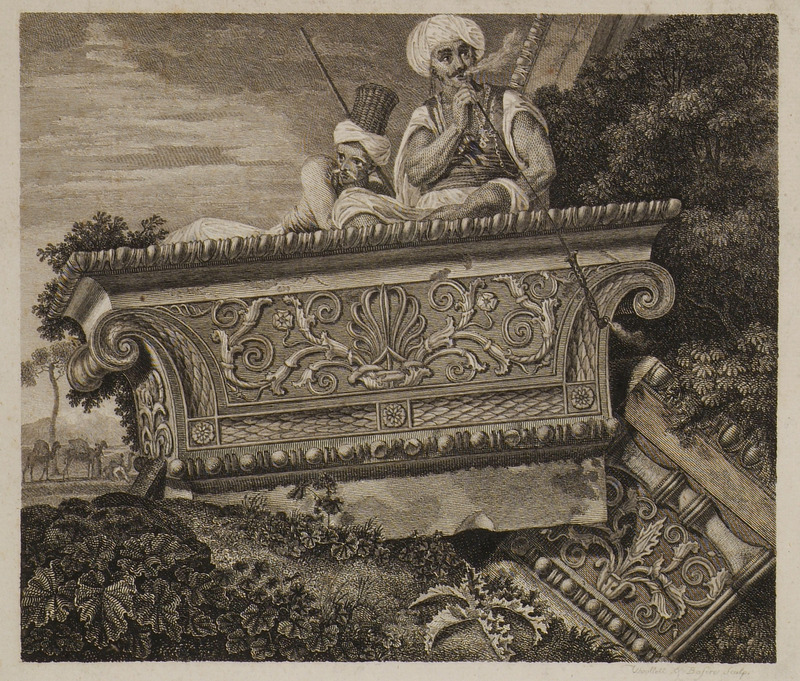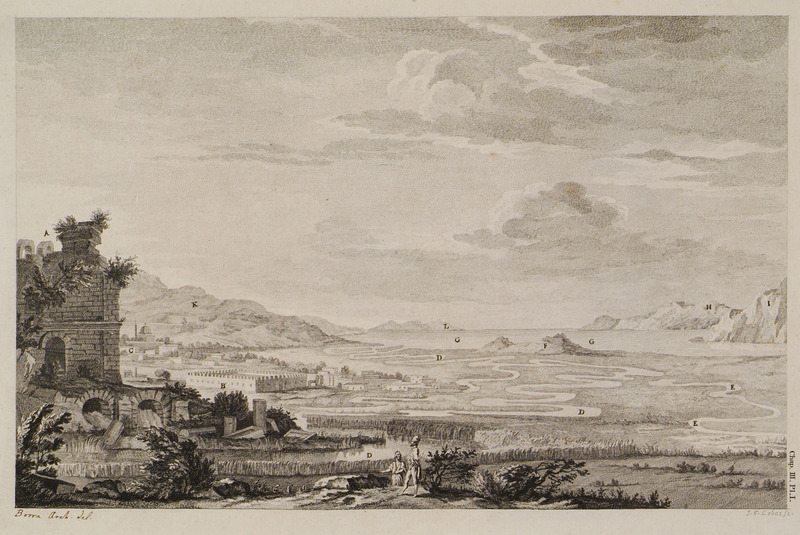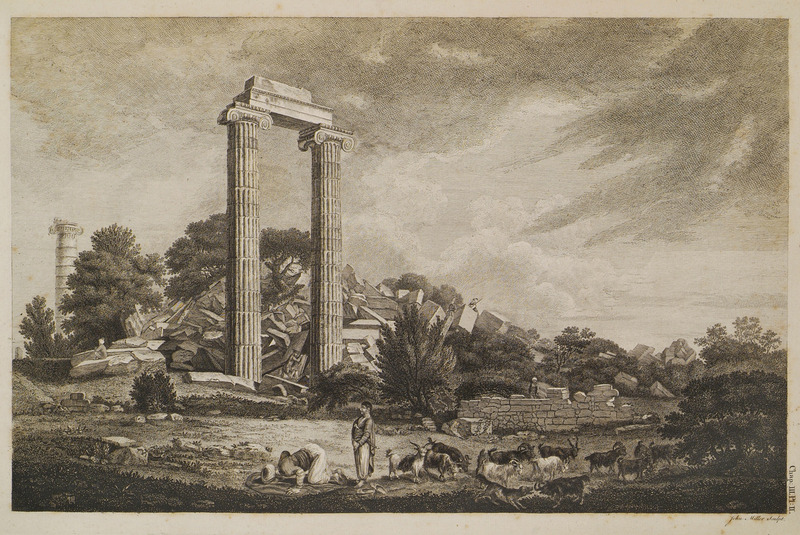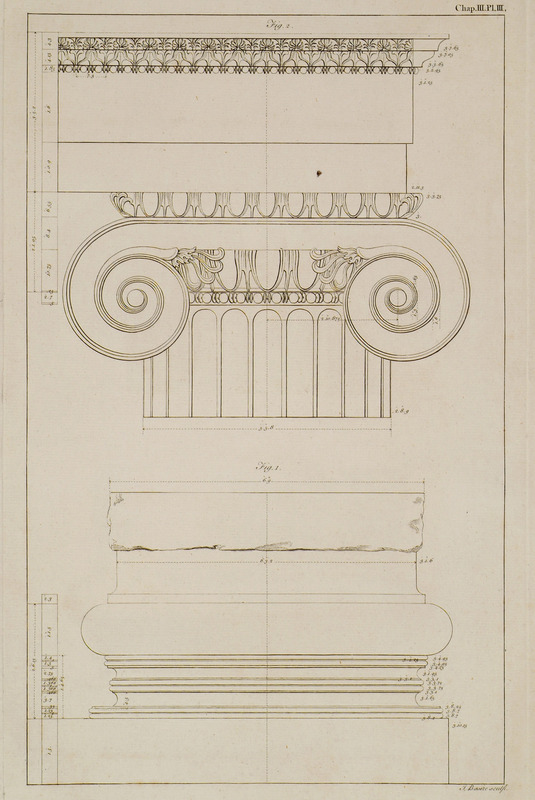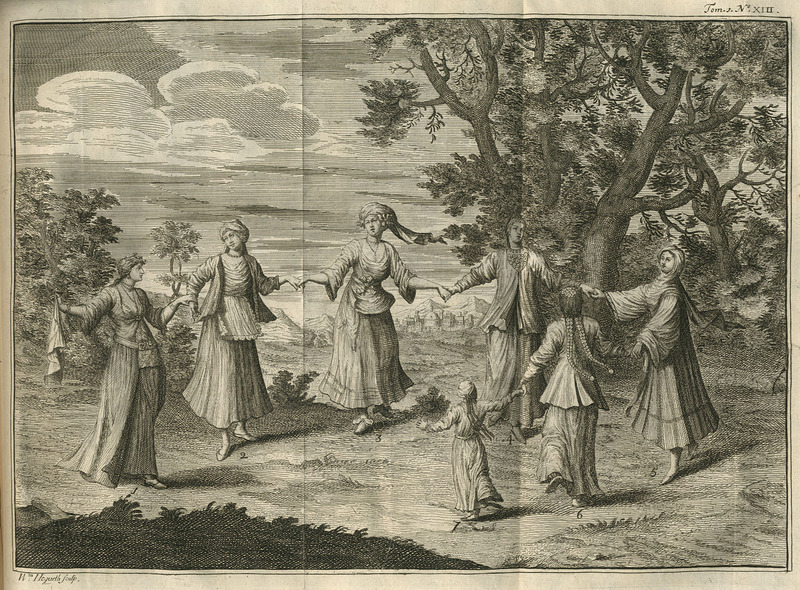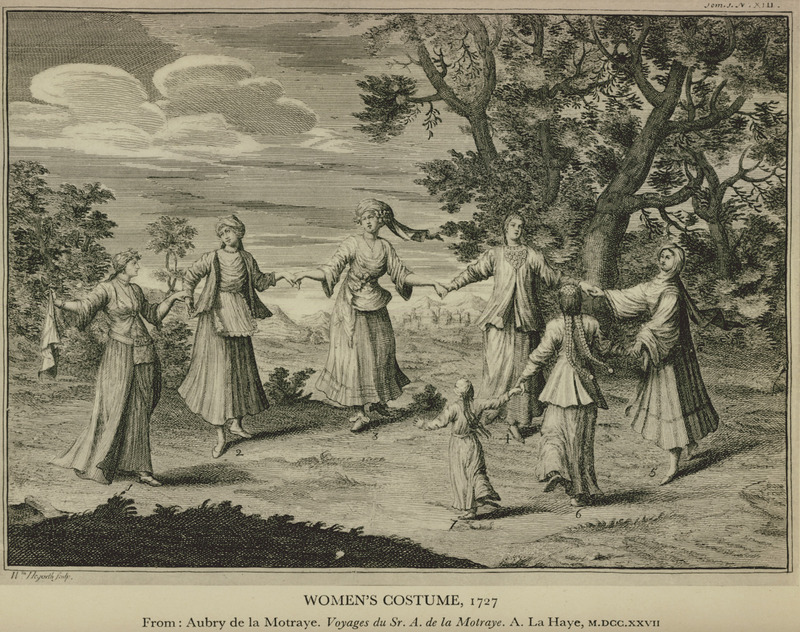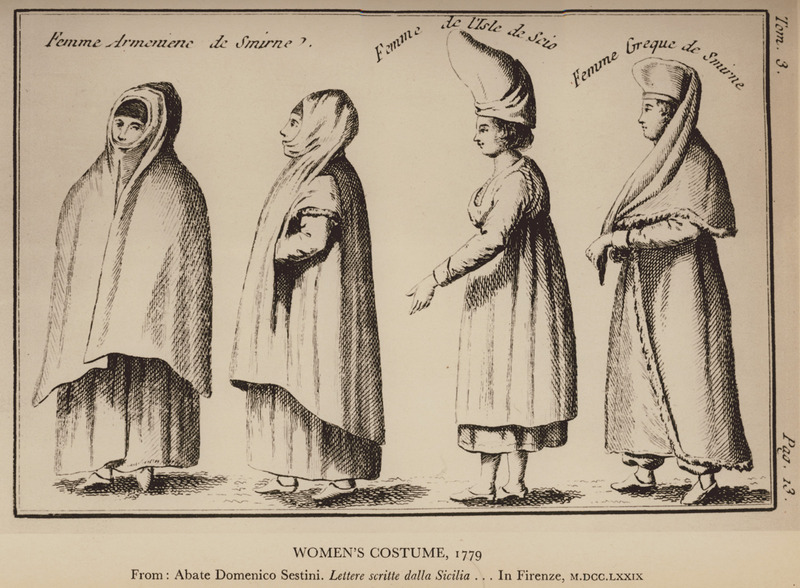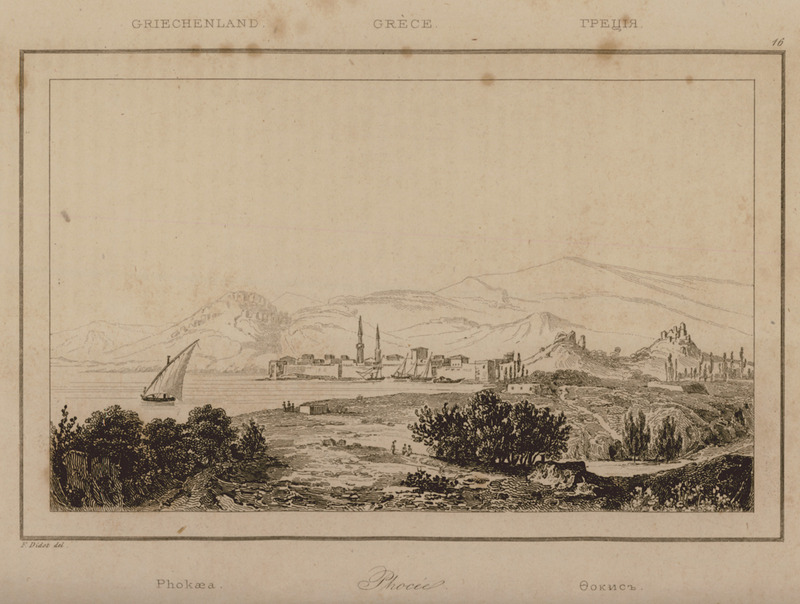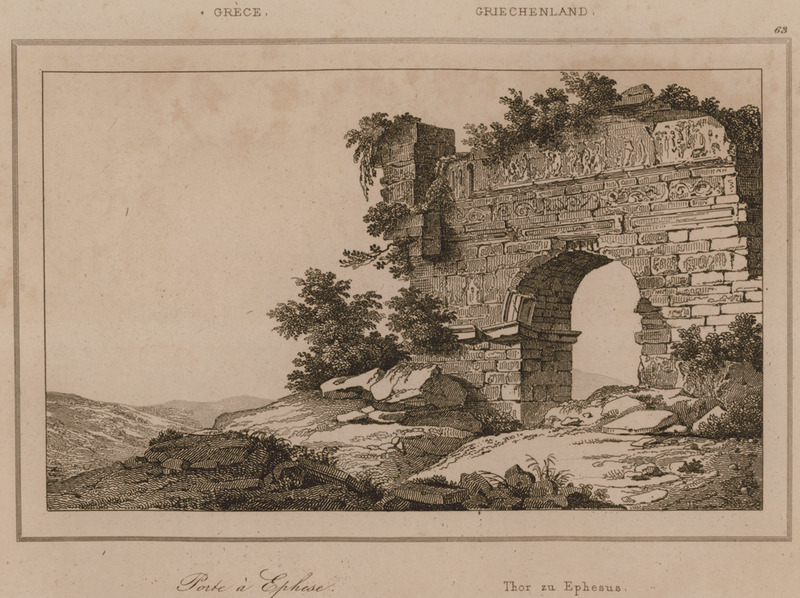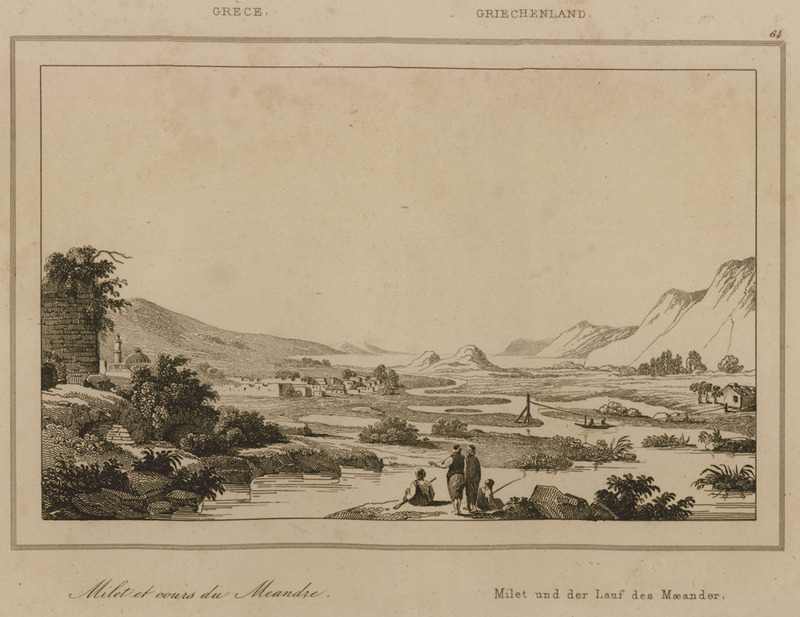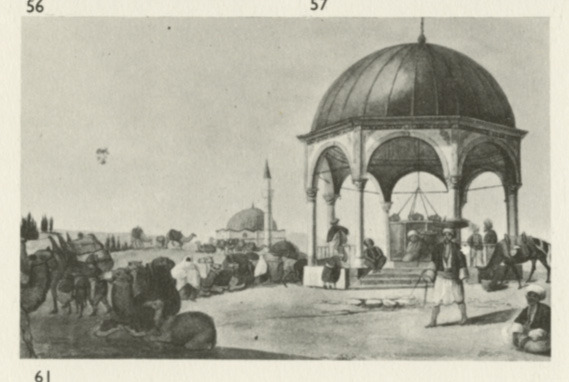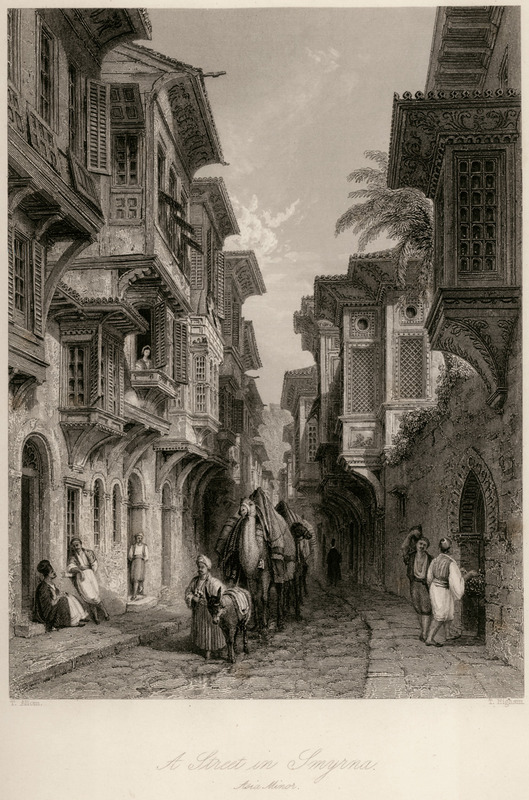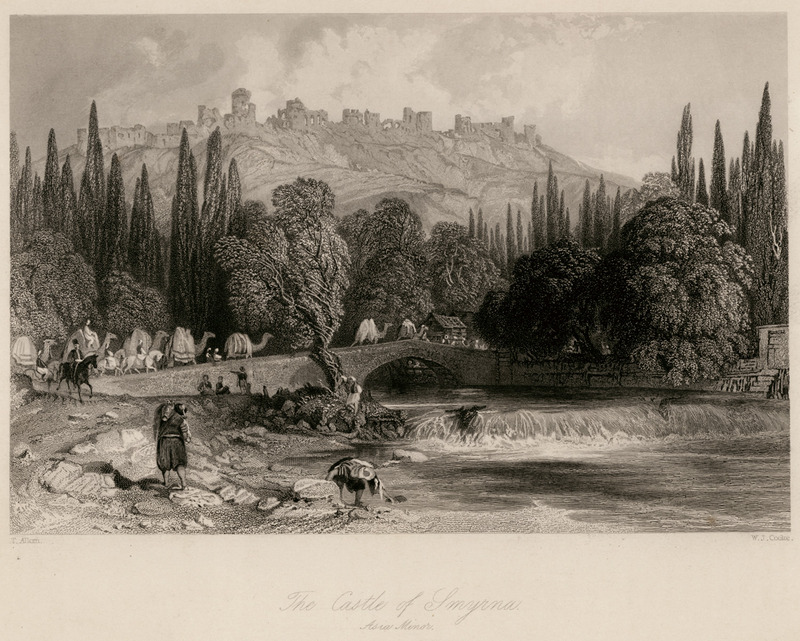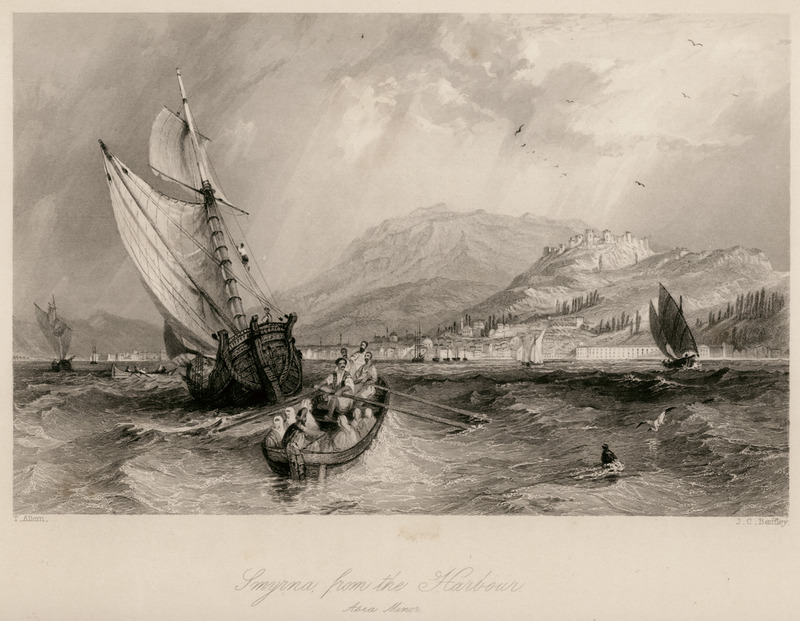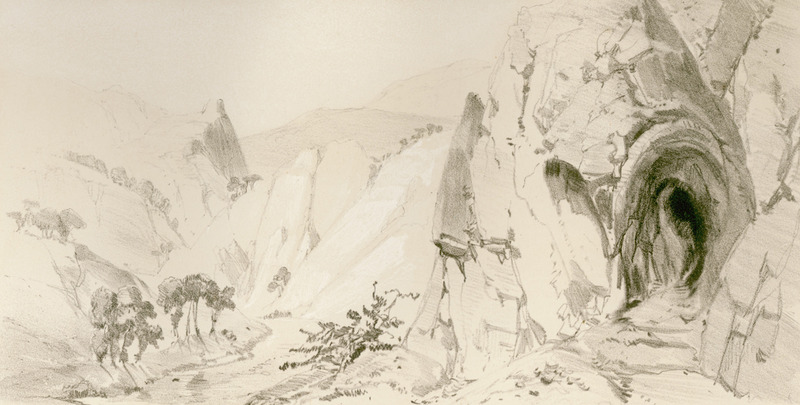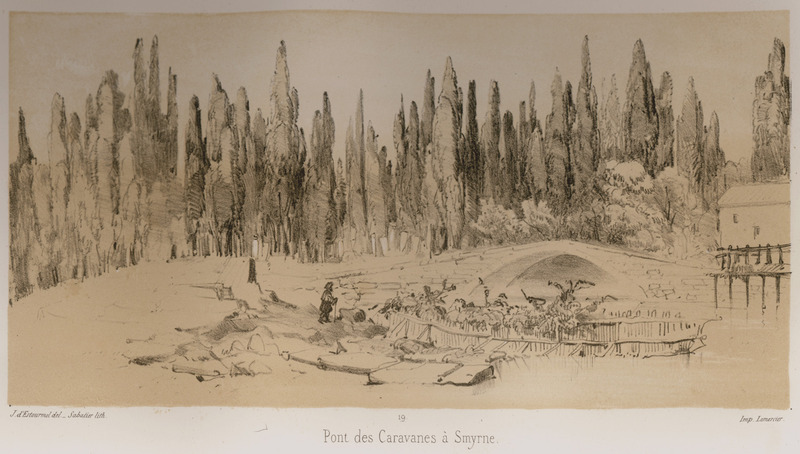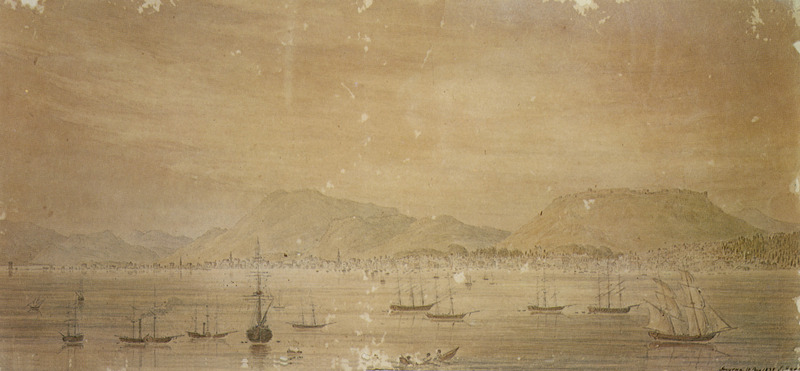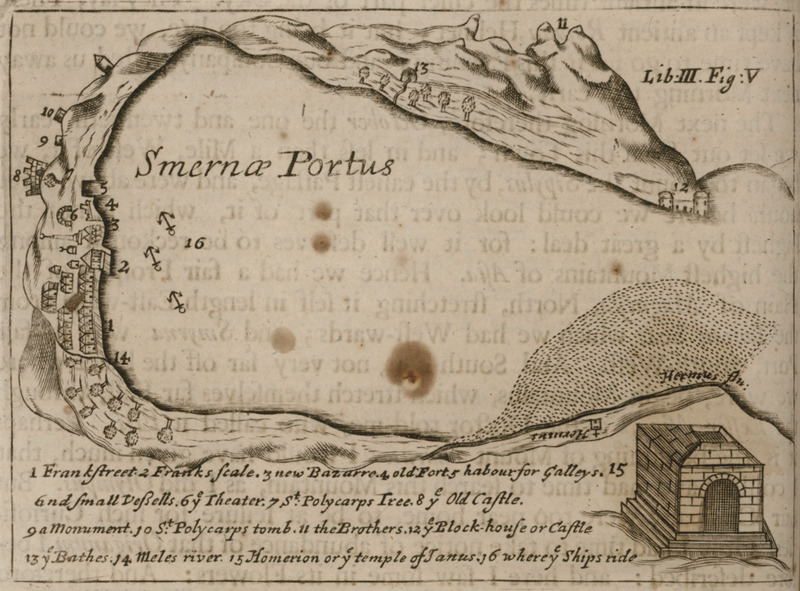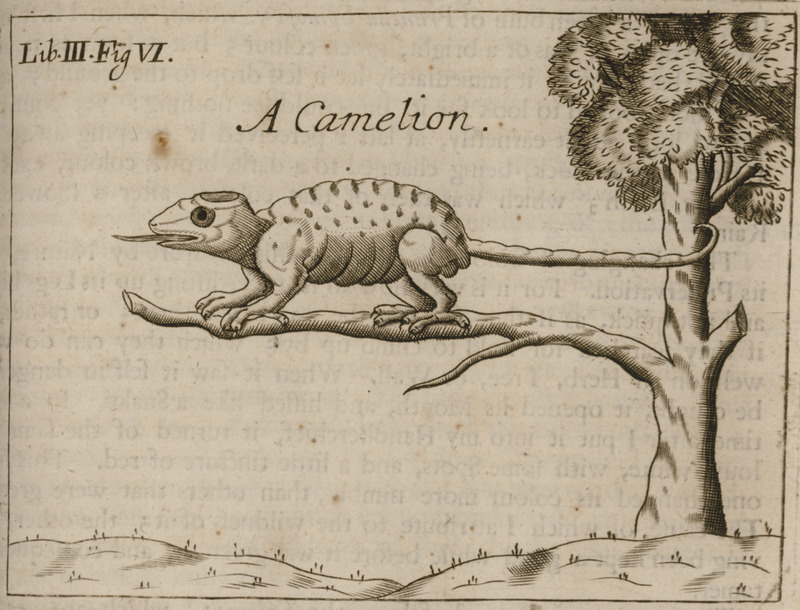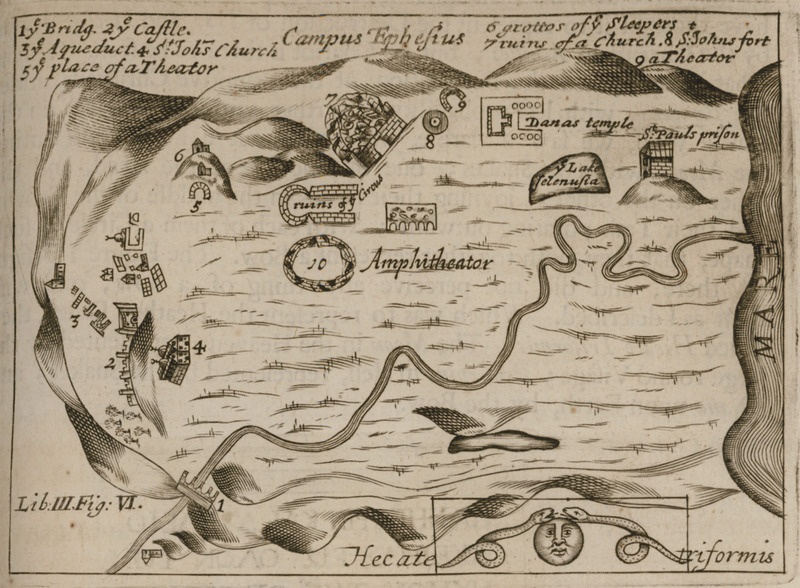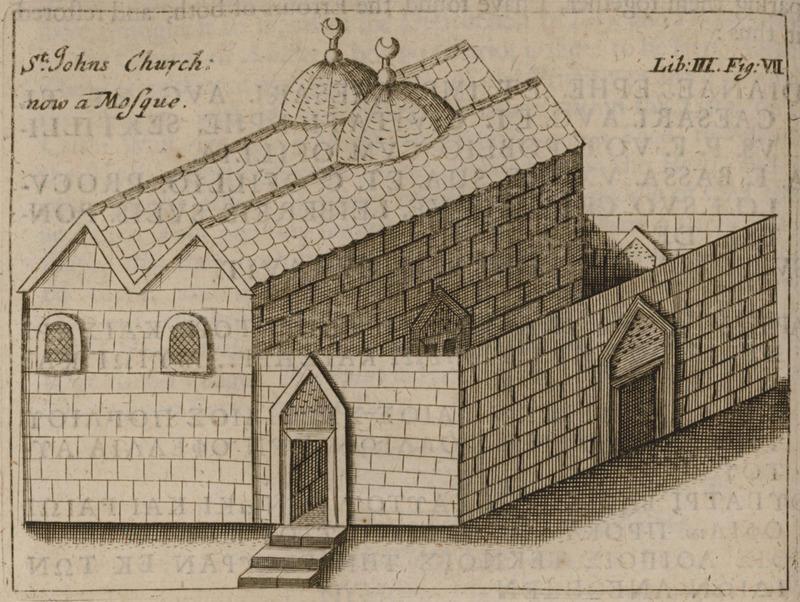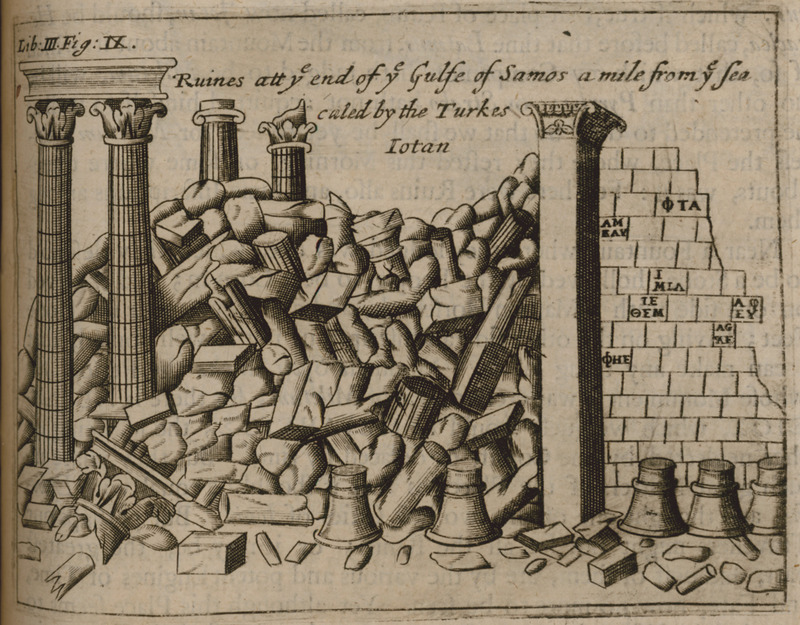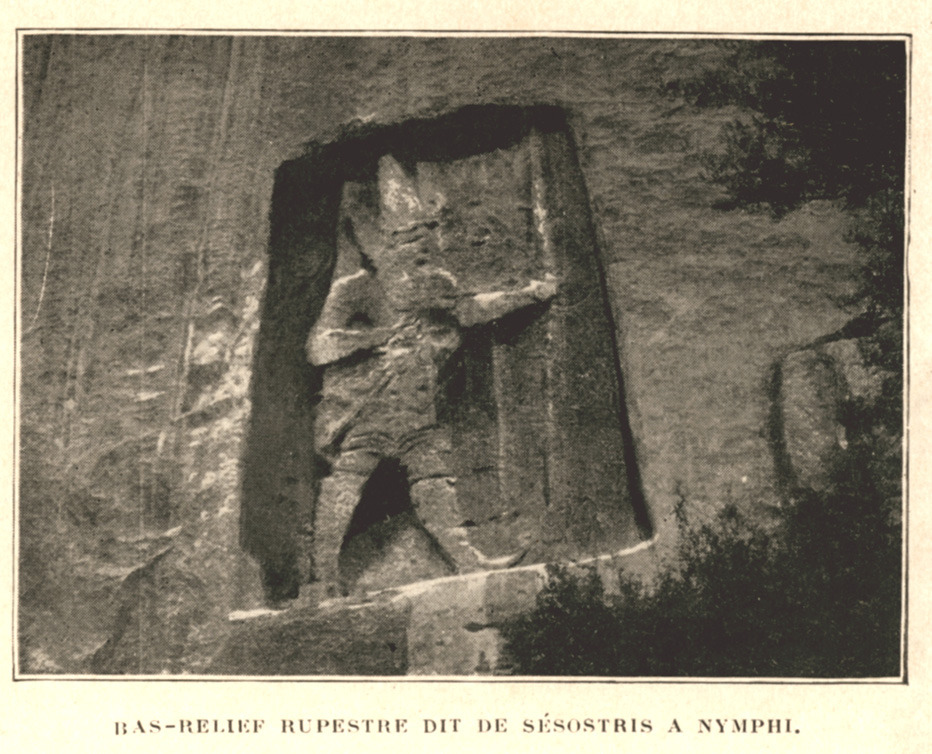Ionia (219 Subjects)
Temple of Athena Polias in Priene: Fig. I: The Cornice of the Temple. Fig. II: A Section through the Cornice of the Pediment, with its Front annexed. Fig.III: A Section through the Architrave of the Temple, with its internal Face. Fig. IV: A Section through one of the Transverse Beams which supported the Lacunaria, with one of its Faces.
Temple of Athena Polias in Priene: The Cornices in the foregoing Plate shaded. Fig. I: The Cornice of the Temple. Fig. II: A Section through the Cornice of the Pediment, with its Front annexed. Fig.III: A Section through the Architrave of the Temple, with its internal Face. Fig. IV: A Section through one of the Transverse Beams which supported the Lacunaria, with one of its Faces.
Temple of Athena Polias in Priene: Architectural features such as base of column, capital, helix, cymatium and others. Fig. I: A square Base, with the lower part of a Column, found near each other, by the South East angle of the Temple. Fig. II: One of the Fronts of a Square Capital, which has four faces, and a Plinth upon the Abacus. A Section through the Stems of the Volutes, in front of the Capital. Fig. III: The Semi-profile of the same Capital. Fig. IV: A Section through the Cymatium of the Architrave. Fig. V: A Fragment of the Lacunaria...Fig. VI: The Cornice, which belonged to the Peristyle within the Peribolus. Fig.VII: A Section through an Architrave, belonging to the same Entablature as the above Cornice did, and found near it, among the ruins at the front of the Peribolus.
Temple of Athena Polias in Priene: Architectural features such as base of column, capital, helix, cymatium and others, (shaded drawing). Fig. I: A square Base, with the lower part of a Column, found near each other, by the South East angle of the Temple. Fig. II: One of the Fronts of a Square Capital, which has four faces, and a Plinth upon the Abacus. A Section through the Stems of the Volutes, in front of the Capital. Fig. III: The Semi-profile of the same Capital. Fig. IV: A Section through the Cymatium of the Architrave. Fig. V: A Fragment of the Lacunaria...Fig. VI: The Cornice, which belonged to the Peristyle within the Peribolus. Fig.VII: A Section through an Architrave, belonging to the same Entablature as the above Cornice did, and found near it, among the ruins at the front of the Peribolus.
Temple of Athena Polias in Priene: Fig. 1: The Entablature of the Temple restored [reconstructed representation], with a Section through the middle, showing its internal face. Fig. 2: The Ornament on the Sima upon a larger Scale… Fig. 3: An Architrave and Cornice, taken from Mr. Wood's measurements of this temple.
Temple of Athena Polias in Priene: The Contents of the preceding Plate shaded. Fig. I: A Cornice found at some distance, to the South East from the Peribolus. Fig. II: A Doric Capital and Entablature.Fig. III: The Projecture of the Triglyph from the Naked of the Frize. (shaded drawing)
Temple of Apollo in Didyma: A Fragment of a Capital upon the heap of Ruins at the North-West Angle of the Temple.
Temple of Apollo in Didyma: The Front and Profile of a Capital of the Pilasters.
View of the course of the Meander from Miletus.
Temple of Apollo in Didyma: View of the End of the Ruin of the Temple from the North-East.
Temple of Apollo in Didyma: Fig. I: The uppermost Step, Base, and lower part of the external Columns of the Dipteros. Fig. II: The Capital and Architrave, with the upper part of the Shaft of the Column.
Circular dance of Greek women wearing costumes from different locations 1: Greek woman from Izmir (Smyrna). 2: Woman from Patmos. 3: Woman from Chios. 4, 6: Women from Bulgaria. 5: Woman from Tinos or nearby island. 7: Young woman from Izmir (Smyrna).
Women's costumes, 1727. From: Aubry de la Motraye, “ Voyages...” , The Hague, M. DCC. XXVII [1727].
Women's costumes from Chios, 1779. From: Abate Domenico Sestin,. Lettere scritte dalla Sicilia e dalla Turchia a diversi suoi amici n Toscania, Firenze, M.DCC.LXXIX [1779].
View of Foça (anc. Phocaea).
Ancient Gate in Ephesus (Asia Minor).
View of Miletus with Maeander river (Asia Minor).
The fountain in the Camel caravanserai.
Street in Izmir.
The acropolis of Smyrna (Izmir).
View of Izmir.
The “cave of Homer” near Izmir.
The Caravan Bridge in Izmir.
Izmir.
Map of the port of Smyrna.
Drawing of a chameleon.
Maps of ancient Ephesus.
View of the church of Saint John in Ephesus.
Ruins of the Temple of Apollo in Didyma.
The Hittite relief at Karambel, on the route from Kemalpaşa to Torbali. The relief is mentioned for the first time by Herodotus, who believed it respresented Pharaoh Sesostris III. According to modern research, it is most probably a depiction of Hittite king Tarkasnava.


